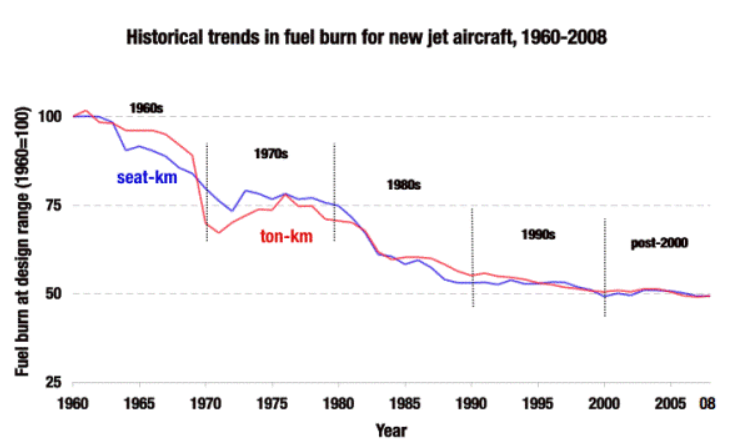You can thank the quarantine imposed by our ever-so-friendly COVID-19 for me getting back to you on a Monday night. As I was washing my pots and pans, grumbling about all those cancelled holiday plans in the upcoming months while enjoying the lock-down here in Denmark, I thought it was about time to throw my thoughts to the web again and get a break from the Corona news-feed overdose.
Whether you wanted to or not, it’s been impossible to stay away from discussions, breaking news, country mortality rankings giving off a sense of Corona-Olympics, and a myriad of memes which thankfully are there to provide a bit of comic relief (my personal favourite definitely remains this one).
But a striking video was also the response of quarantined Italians playing accordion on their balconies, seemingly having a good time and bringing some joy to the ‘hood. One might put it on the Italians’ warm-hearted temperament, but it has been experienced time and again that in times of hardship, community ties become stronger and people support each other (well, from a safe distance in this case, of course). But what does this all have to do with sustainable living? Spending your life trapped on a balcony doesn’t seem like a particularly long-term goal to strive for.
Well, one could be very cynical and suppose that this pandemic is a nice little drill for what could await us. By that I don’t mean a post-apocalyptic scenario worthy of the “Walking Dead”, but simply a severe limitation on the endless travelling, consuming and past-time possibilities we have at our fingertips (literally).
These limitations could come for different reasons:
-we actually decided to do something about those Climate Agreements we happily signed a few years back, thinking at the time that the objectives would magically be reached once we signed them on a piece of paper, not realising how much effort it would actually involve.
And no, these efforts do not just come from governments magically waiving their wands or scientists inventing a new energy-making machine. It’s gonna require some pretty strong will-power from us mere mortals on the consumption side too, and that involves a bit more than saying no to a plastic straw in the bar on your Ibiza holidays.
-the rate of crop-destroying droughts and floods, pandemics (whether concerning the sapiens squad, other animals or plants) and other natural reactions of Mother Nature for being bullied by us over so many decades could put a severe long-lasting stress on our agriculture and raw materials supply chain, causing our whole economy to collapse. Yes, to my eyes this is the biggest threat of climate change and should be communicated a bit more loudly than the sea-level rise by a few centimeters every decade, which to most people seems like a minor price to pay to keep on consuming mindlessly.
-we run out of petrol, the fuel on which 96% of our transportation system relies. But let’s be honest, this is something that’s been prophesied since my father was my age, and it might already be too late by the time this ACTUALLY happens. We keep finding ways to access new reserves (i.e. commercially recoverable oil) whenever proven reserves are starting to look a bit scarce. A real problem (or blessing, depending on how you look at it) is that more and more technology and effort, and hence energy, has to be used to recover this source of … energy. And so inevitably there will come a point where we will have to spend more energy extracting oil than we can get out of it, which by definition makes it economically unviable. In fact, this point is approaching much faster than we realise. This is simplified in the picture below, which shows the ROI (ratio of energy delivered to energy required to extract it) for oil in the world over the past decades.
You can see that our good ol’ Boomers in 1960 (or in fact their parents, aka Grandpa and Grandma), had a lot easier time getting access to all that oil than we had in 2010. Can’t really blame them for it, they already had been through enough hardships in their lives at that point. Anyway, it definitely didn’t get easier throughout the years, and it’s not predicted to improve in the years to come. So there comes a point where we will have to give up squeezing out that precious liquid, just as you eventually give up trying to get to those last bits of pumpkin-spice frappucino Grande latte stuck between ice cubes in your Starbucks cup using your (sustainably sourced) straw.
The point of these scenarios (which are not mutually exclusive by the way) is that we will most likely have to reduce our consumption drastically in the near future anyhow, whether planned or forced. Sorry to disappoint on that one: as an engineer I have a lot of faith in technology, but when the numbers don’t add up to satisfy our energy needs (and stay tuned for a thrilling post on that theme in a bit), we’re gonna have to adapt our need to the numbers.
But what about just making our machines more efficient, for the same amount of travelling? Well, first of all, this is what the fuel efficiency curve for jet aircrafts (such as the Boeing 737) looks like:

The seat-km and ton-km metrics indicate the fuel efficiency is measured for a given distance travelled and weight/number of passengers carried. While showing an impressive progress, the curve’s decrease has definitely been slowing down over the past decades. Now I’m not a jet expert, but this seems to hint towards the fact that we’re getting closer and closer to the physical limits of that technology. And you might continue to spend millions in research to keep that curve going down by another few percent, but to cut our emissions by 70- 80% anytime soon, we’re gonna have to find another way.
Second problem is the infamous rebound effect: you make something more efficient just to have people consume more of it. Car engines have kept getting more efficient, yes, but this has been offset by cars getting heavier to be more spacious, safer, “smarter”, etc. Build another motorway lane to relieve traffic jams, and you’ll find out you’ve just created more traffic as more people have an incentive to drive to work. Insulate houses better? People will heat almost as much, but walk around in a T-shirt instead of that embarrassing wool jumper knitted by Mom last Christmas (OK I might be dramatizing, not everyone is Ron Weasley).
But you got it: while the first point on efficiency is simply ruled by the laws of physics, the second is definitely a behavioural issue. The problem is, this behaviour is so deeply engrained in our society that only shocks such as the Coronavirus crisis seem to be able to momentarily stop our constant thirst for more.
So maybe instead of impatiently waiting for the situation to come back to normal after the Coronavirus pandemic and catch-up on all that lost time in quarantine, let’s take the time to really think about what is really missed and what is not so bad about this slowed-down life-pace.
Just a hint: if they’re still around, have a chat with your grandparents. Even if they are the most sensitive to this new pandemic, I don’t think they are the most worried about it. I’m pretty sure they’ve seen worse in their lifetime, and most of all they are used to not having everything they want immediately, anywhere, at any time. Ever wonder how your granddad could vividly remember his summer holidays of ’57? Well, back then travelling was still something special and exciting, and you would take the time to enjoy it. Enjoying things for the time they take and appreciating the value of simple daily routines is something we forgot along the way, and is probably a reflex we should try to get back if we want to start putting a break to ever-accelerating consumption behaviours.
And hey, I’m definitely in the same boat as everyone: my family lives a 2 hrs flight away (instead of an excruciatingly painful 26 hrs coach journey – yes living on islands doesn’t help), so why not go for a weekend, especially for such cheap prices? Well, I guess it’s time to accept that the world really isn’t as small as people say (and that’s a great thing!), and that moving to a place also means embracing the new environment you’re in. If you make the choice to move, you gotta own it. And you’ll see that whenever you do end up going back to visit your family or friends, it makes those trips ever-so more enjoyable and memorable. This is true for travelling, but also for the restaurants, the cinemas, the shopping malls, etc., which you could go to, but don’t necessarily have to.
